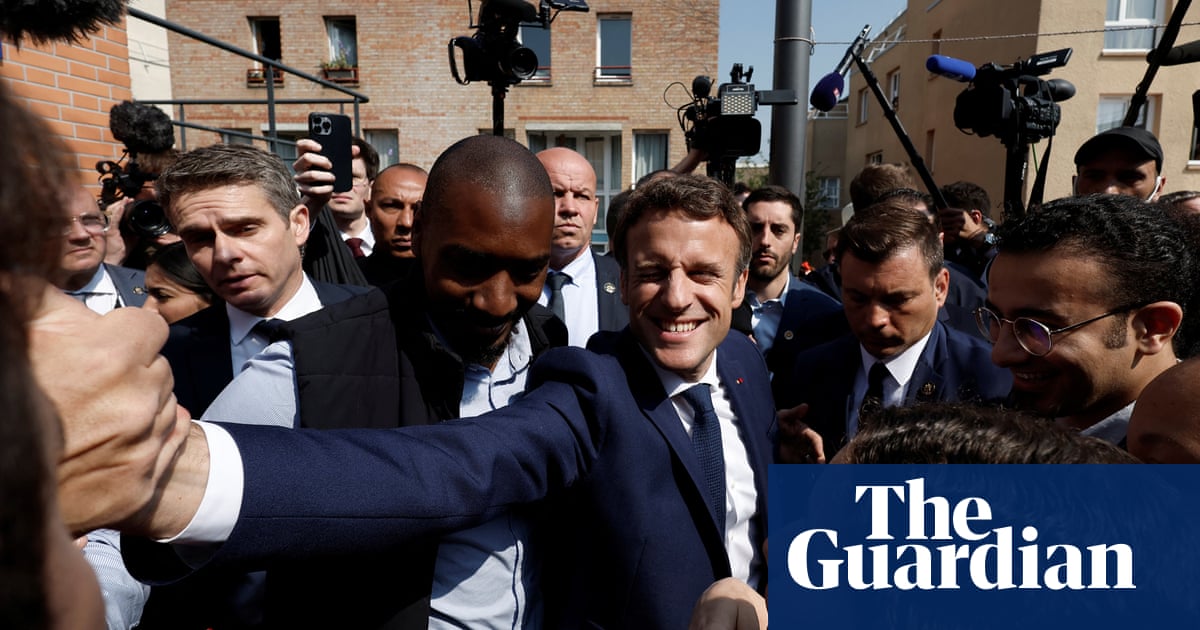Macron must rebuild France’s party politics – and look to the left, not the right | Letters - 4 minutes read

‘With Emmanuel Macron barred from standing again in 2027, he has five short years to establish the foundations for a healthy party system.’ Photograph: Benoît Tessier/EPA Macron must rebuild France’s party politics – and look to the left, not the right Michael Meadowcroft, Anne Luke and Nick Moss on the re-elected French president’s next five years in power
Your leading article (25 April) is right to point to Emmanuel Macron’s urgent task: to tackle the reasons that led more than 40% of French electors to support a candidate with diametrically opposite views to his own. However, the huge underlying problem that will constrain that task is the lack of values-based political parties across the whole spectrum to the left of Marine Le Pen’s far-right movement.
In 2017, Macron entered the political world without any party affiliation and was elected as president as a consequence of a series of accidents that neither he nor the French parties could have foreseen. Both the major parties of right and left imploded as a consequence of their own internal problems and Macron’s En Marche leapt into the vacuum.
That party vacuum continued through to Sunday’s election but, with Macron constitutionally barred from standing again in 2027, he has five short years to establish the foundations for a healthy party system.
Governments are never stable without parties based on some semblance of political philosophy, and the divide in France that your article stresses can only be narrowed by electoral competition based on parties rather than personalities.
The major parties may seem dead, but they still have deep roots in the regional and local assemblies and they dominate the French Senate. By 2027, Macron’s party will not have Macron, and the focus of the “old” parties should be on filling the new vacuum that will then exist.
Michael Meadowcroft
Leeds
• In order to avoid a move even closer towards the normalisation of fascism, Emmanuel Macron does not need to move closer to the right but instead needs to look to the left. The notion that by pandering to the toxic ideologies of the extreme right we somehow dilute them is flawed; it only leads to a more extreme-right politics.
We see this here in the UK with a Conservative party that has now pandered for some years to the brutally racist ideas of forces such as Ukip. By assuming policies like Theresa May’s hostile environment, this led to the Windrush scandal, and more recently to the horrifying dehumanisation of asylum seekers as needing “processing” (like tax returns rather than people) in Rwanda. Only by seeking an alternative on the left can an inclusive ideology that repudiates the extreme right be found.
Dr Anne Luke
Harrogate, North Yorkshire
• Timothy Garton Ash (25 April) notes that “widespread unhappiness with the liberal centre and ‘Europe’ is a result of many causes”, but fails to recognise as key Emmanuel Macron’s role in making the working class pay for the security of the “liberal centre”.
As Macron campaigned, workers at BioMérieux, Dassault, Safran, Hutchinson, Lustucru and the RATP were striking for wage increases. It is estimated that, to meet increases in the cost of living, French workers need a minimum wage of €2,000 (£1,670). Macron offered them a €100 chèque énergie and the prospect of an extended retirement age.
We will not solve the problems faced by the poor through pretending that Macron is anything other than the representative of the rich. Far from being Napoleon, Macron is more like a Lebrun paving the way for Le Pen’s Pétain.
Nick Moss
London
• Have an opinion on anything you’ve read in the Guardian today? Please email us your letter and it will be considered for publication.
Source: The Guardian
Powered by NewsAPI.org